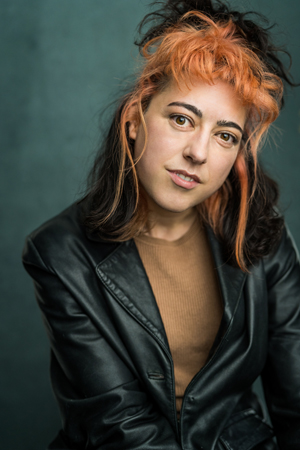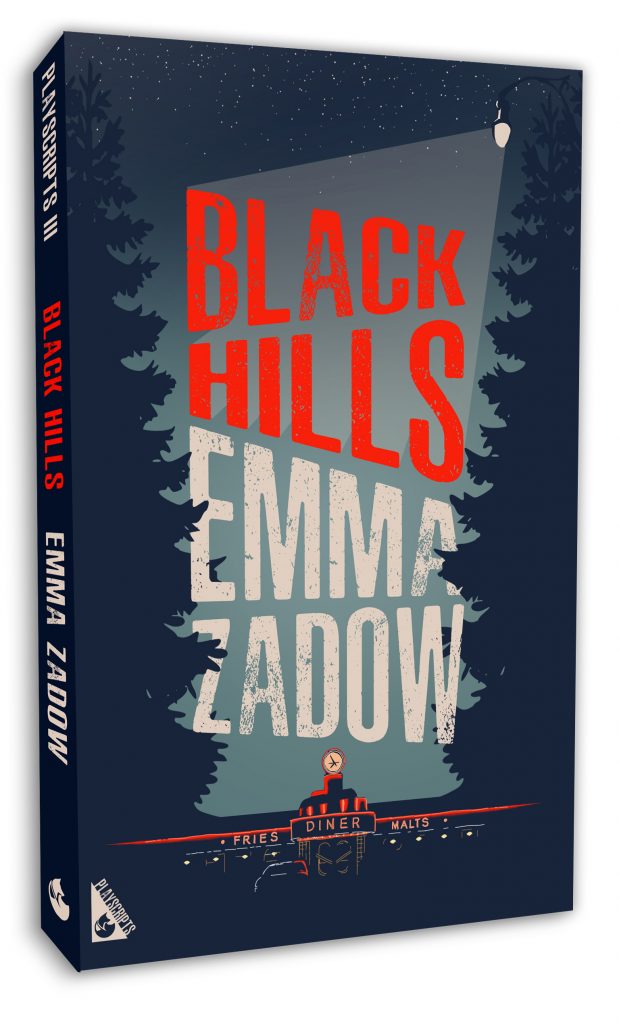An Interview with Emma Zadow


Emma Zadow is an actor, playwright and screenwriter from Norfolk. She trained at Rose Bruford College as an actor, and her plays have been performed at the Arcola, the Old Red Lion Theatre, Camden Fringe Festival, Norwich Arts Centre and Pleasance Theatre. Emma is an alumni playwright from the Soho Theatre Writers Lab, and she was shortlisted for the ETPEP Award and Tony Craze Award. A BBC New Creative, her screenplays include the hit short film The Cromer Special and Jigging. Emma now lives in London.
We caught up with Emma to talk about her forthcoming playscript, Black Hills.
What inspired you to write Black Hills?
America, Kentucky, Memphis, Arkansas, New Orleans… the awareness you feel there of tradition, heritage, truth and inherited history. My backpacking from Kentucky up to Chicago and then back down through the South to New Orleans for Christmas and up via the East Coast through Virginia and the Carolinas to NYC for NYE. I met a lot of people. I travelled with a lot of people. Like Sofia Coppola said about Lost In Translation, sometimes people you meet and know within two days mean more than those you spend a whole lifetime with. (And I’ll always remember a bookshop manager in Memphis thinking I was from Chicago. I felt far cooler than the reality, ‘I’m from Norwich!’)
Are there any main themes or points you want the reader to take away from your playscript?
What does it take to make a family? What happens along the road? What do you leave behind and how do you choose what to leave by the roadside and what to take with you?
Which other writers do you most admire and why?
Sam Shepard, Steve Dykes, Marina Carr and Paula Vogel for their connection to character, sense of place and dark humour. Martin McDonagh for sheer black humour and muscularity in his dialogue and worlds.
Are there any books which have changed your life?
Bury My Heart at Wounded Knee by Dee Brown, because it’s a sublime piece of indigenous writing that many leave out of university teaching. Anna Karenina affected me as I read it only in lockdown, and it’s a book that stays with you for years in its commitment to its characters and very distinct lack of ‘hero worship’ for Anna; unlike, perhaps, Marvel female heroines, who don’t get the luxury of getting things wrong and making mistakes. As much as Anna does, anyway. Martha Gellhorn’s non-fiction is exceptional. Her war-journalism prose – her correspondence on the Spanish Civil War in her book The Face of War, for instance – is exciting reading and deserves more recognition than, perhaps, her then-husband, Ernest Hemingway.
Books that have changed my life significantly will be ones I read as a teenager – The Graveyard Book by Neil Gaiman for found families, Women in Love by D.H. Lawrence for sister relationships and connection to nature, and The Mabinogion. Its interweaving celtic strands across the centuries bring great inspiration and teachings.
What’s the best piece of writing advice you’ve ever received?
I’m never quite sure about writing advice, as I’ll always question it and mistrust ‘writing advice and rules’! But I do believe that the more you experience, good and bad, the better. If it’s bad, at least you have experience to put into a character’s story to make it come alive on the page. Say ‘Yes’ more often than ‘No’.
If you could offer a budding writer one piece of advice, what would it be?
Know what you want to say and how you want to say it. And be ready to defend your story. Defend your characters and let them attack the audience. Stories are the gateway to empathy – let that happen however that means to you!
What drew you to the story behind Black Hills?
The idea of the road story between siblings enchanted me, and I loved the idea of a shared history, and what that does to Scott and Joanie, because they can’t make it up like everyone else – their truths are facing right back at one another. The mythic symbolism of the Oregon Trail played a big part, too, in terms of heritage on the journey. They drive – but to where? And who for? Their mother, Carrie, is always in their present and future. The book flits between 1968 and 1975, and their mother stays the same.
What’s the strangest job (besides writing) that you’ve ever had?
That would definitely be being a cat’s dermatologist’s assistant. I don’t even have a dermatologist!
Where do you write?
Outdoors, indoors, always pen and paper or via dictaphone on my audio recording app.
What’s the best place to read?
Where I feel no one will interrupt.
You’re hosting a literary dinner party. Which famous writer (from any point of history) do you invite?
I’m expanding the guestlist. Martha Gellhorn, Federico Lorca, Anne Rice, Sappho, Joy Harjo, Assata Shakur, Emily Dickinson and Dylan Thomas.
What’s the background music at your dinner party?
Anything jazz/blues/70s
Any outlandish hobbies?
Um, does foraging count? I like wild garlic and puffballs, and I grow my own rosemary, spearmint, parsley, thyme and tarragon.
What’s next?
I’m currently developing a TV police drama about the recent spike injections, set in the North East. We’re shooting the pilot in the late summer. My BBC New Creative short Jigging recently came out, and is available to watch on iPlayer…
Set between the Black Hills of South Dakota in 1973 and East Coast suburbia in 1968, Black Hills picks out a stark portrait of intricate familial relationships, and how dark events in the past must be addressed before they take root.
Toying with heavy themes, and engaging with the notions of American identity and domestic violence, Black Hills is a thought-provoking tour of one family’s past that leaves a lasting impression.













